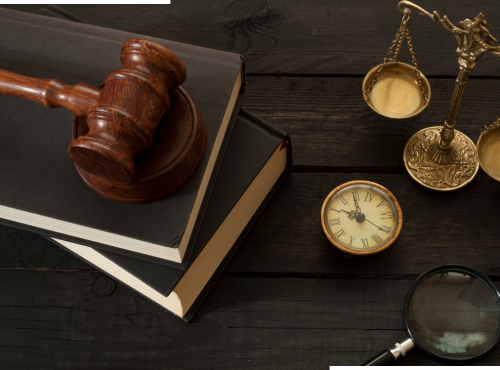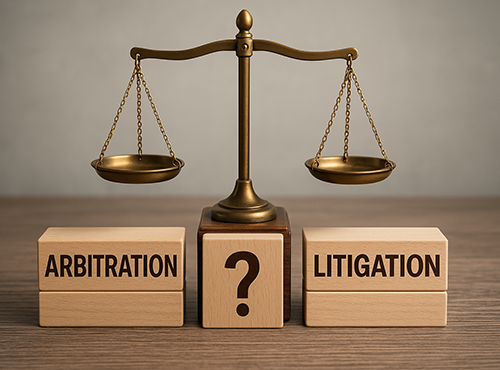What to Do When You're Falsely Accused?
Being falsely accused can be one of the most horrible experiences one might experience. The consequences of such accusations can ripple through every aspect of your life, affecting your emotional well-being, reputation, and even your future prospects. The emotional cost of being wrongly accused can lead to stress, anxiety, and a profound sense of injustice, which can overpower even the strongest individuals.
While the challenges are steep, it’s crucial to remember that the law offers protections for the falsely accused. Legal systems in most democratic countries are built on the principle of ‘innocent until proven guilty,’ providing a fundamental shield against wrongful convictions. This means that the burden of proof lies with the accuser, not the accused. Understanding this is the first step in navigating the complexities of your defense.
Moreover, everyone has the right to a fair trial, access to legal representation, and the opportunity to present evidence in their favour. These rights are pillars designed to prevent the miscarriage of justice that can arise from false accusations. Thus, if you find yourself in this difficult situation, grabbing hold of these legal protections and consulting with a competent attorney becomes paramount.
In this blog, we aim to outline practical steps and legal advice to help those falsely accused navigate their circumstances with clarity and to restore their lives to normalcy. Remember, the accusation is not the conclusion; the right legal steps and a solid understanding of your rights are your best defense.
Understanding False Accusations: A Deeper Dive
False accusations represent a critical and sensitive area within the legal landscape, primarily because they involve a claim made against someone without a basis in truth. These can be distressing and damaging, leading to potential social, professional, and legal consequences for the accused.
What Constitutes a False Accusation?
A false accusation arises when an individual is wrongfully charged or alleged to have engaged in misconduct or criminal activity. These allegations can be due to various factors, including honest mistakes, misinterpretations of events, or deliberate attempts to harm someone’s reputation.
Common Scenarios of False Accusations
- Criminal charges: One of the most severe forms involves being wrongfully accused of a crime, such as theft, assault, or even more serious charges like fraud or murder.
- Workplace incidents: Accusations of harassment, theft, or breach of duty in professional settings can not only tarnish a person’s career but also lead to severe legal actions.
- Personal relationships: Within the context of strained personal relationships, charges such as domestic violence or abuse are unfortunately common, sometimes motivated by the desire to gain leverage in a situation like divorce proceedings.
- Academic dishonesty: Students might be falsely accused of cheating or plagiarism, which can affect their academic standing and future opportunities.
The Impact of False Accusations
The impact of being falsely accused extends beyond the immediate legal consequences. It can lead to public humiliation, stress, psychological trauma, and financial burden due to legal costs. The judgement associated with even a baseless accusation can stick around affecting personal relationships and professional opportunities long after the legal issues have been resolved.
The Importance of Knowing Your Rights
Understanding your rights is paramount when facing false accusations. Here’s why:
- Protection against self-incrimination: The right to remain silent allows you to avoid making statements that could be used against you in a court of law.
- Access to legal representation: You have the right to consult an attorney, which is instrumental in navigating the complexities of your case and ensuring your side of the story is heard effectively.
- Right to evidence: You can obtain and present evidence that supports your innocence. This includes digital records, witness statements, and any other material relevant to disproving the accusation.
- Right to a fair process: This ensures that you receive a just hearing, which is critical in cases where emotions and personal biases might otherwise cloud judgment.
Responding to False Accusations
If you find yourself falsely accused, taking immediate and thoughtful action is crucial:
- Do not confront the accuser: This can lead to further complications and potentially escalate the situation.
- Gather evidence and documentation: Compile all relevant information that could demonstrate your innocence or the accuser’s lack of credibility.
- Maintain a low profile: Especially on social media and public platforms, as anything you say can be misconstrued or used against you.
- Seek professional help: Engaging with a lawyer who specializes in such cases early on can make a major difference in managing the situation effectively.
Being falsely accused requires a calm, informed approach to protect your rights and reputation. By understanding the nature of false accusations and your legal rights, you can navigate this challenging situation with dignity and assert your innocence effectively.
Immediate Steps to Take When Falsely Accused
When you find yourself falsely accused, the initial reactions and steps you take can significantly influence the outcome of your situation. Here’s a strategic approach to handle this situation:
Stay Calm and Composed
In the face of false accusations, maintaining your composure is crucial. Reacting emotionally or impulsively can harm your credibility and affect your ability to think clearly about your next steps. It’s important to:
- Pause and process: Give yourself time to absorb the shock and gather your thoughts.
- Seek support: Talk to a trusted friend or family member who can provide emotional support and help you stay grounded.
- Manage stress: Engage in stress-reducing activities such as meditation, exercise, or speaking with a counselor.
Staying calm not only helps in maintaining your dignity but also in making rational decisions moving forward.
Avoid Direct Confrontation
Engaging directly with the person who has accused you can make matters worse. Direct confrontation might lead to escalated emotions or even provoke accusations of harassment or intimidation. Consider the following:
- Keep your distance: Avoid personal encounters or communication with the accuser to prevent any potential misinterpretations that could be used against you.
- Document interactions: If unavoidable, ensure that all communications are recorded or conducted in the presence of witnesses to protect yourself from further false accusations.
Contact a Lawyer
One of the most critical steps when falsely accused is to seek legal counsel as soon as possible. Consulting with a lawyer provides several benefits:
- Expert guidance: A lawyer specialized can guide you through the complexities of the legal system.
- Protect your rights: An attorney will ensure that your rights are protected throughout the investigative and legal processes.
- Strategic defense: Early legal advice can help in formulating a strong defense strategy, possibly preventing charges from being filed.
Engage in No Public Discussions
Discussing your case publicly, especially on social media, can adversely affect your case. Statements made publicly can be taken out of context or used by the prosecution:
- Stay quiet on social media: Refrain from posting anything about the accusation online.
- Control the narrative: Let your lawyer handle all public communications or statements regarding your case.
Taking these immediate steps can help you manage the situation more effectively and set a positive course for your defense against false accusations. This proactive and measured approach not only protects your rights but also positions you for a better outcome in clearing your name.
Navigating the Legal System When Falsely Accused
Navigating the legal system after being falsely accused can be daunting and complex. Understanding the steps involved in handling your case, from initial consultations with a lawyer to devising a legal strategy, is crucial. Here’s a comprehensive look at what you should expect and how to prepare effectively.
Consultation: Preparing for Your First Meeting with a Lawyer
Your first meeting with a lawyer is a critical step in your defense against false accusations. To make the most of this consultation, you should come prepared:
- Bring all relevant documents: Any paperwork that could pertain to the case, including emails, messages, and any official documents.
- Write down a timeline: Prepare a detailed account of events related to the accusation, noting dates, times, and the context of interactions.
- List potential witnesses: Names and contact details of people who could support your version of events.
- Prepare questions: Have a list of questions for your lawyer concerning your rights, potential strategies, and their experience in handling similar cases.
This preparation will help your lawyer understand your case better and provide you with more precise and effective guidance.
Documentation: Collecting Evidence and Maintaining Records
Effective documentation is your best ally in disproving false accusations. Maintaining thorough records can significantly impact the outcome of your case:
- Evidence of alibis: Proof of your whereabouts at times relevant to the accusations can be crucial.
- Communication logs: Keep all communication that may help to establish your innocence or the accuser’s motive.
- Preserve physical evidence: Anything that could be used to support your case should be preserved and shown to your lawyer.
Organized and accessible documentation ensures that no critical information is overlooked and that your defense can be as strong as possible.
Legal Strategy: Overview of Common Defense Strategies in False Accusation Cases
Developing a strong legal strategy is essential for defending against false accusations. Here are some common defense strategies that might be considered:
- Discrediting the accuser’s credibility: Demonstrating inconsistencies in the accuser’s story can be an effective way to challenge the accusations.
- Presenting alibi evidence: Proof that you were elsewhere when the alleged incident occurred can outright refute the accusations.
- Using character witnesses: Individuals who can attest to your character and likelihood of not committing the accused act can sway the perspective of the jury or judge.
- Motive to lie: Showing that the accuser has a motive to lie can help undermine the credibility of the accusations.
Each case is unique, so the strategy must be tailored to the specific circumstances and evidence of your situation. Regular discussions with your lawyer will help refine the approach as the case evolves.
By understanding these aspects of navigating the legal system, you can take proactive steps to protect yourself and challenge the false accusations effectively. This process requires careful preparation, diligent documentation, and strategic legal thinking, all aimed at clearing your name and upholding justice.
Managing Your Reputation When Falsely Accused
The repercussions of being falsely accused extend beyond the courtroom, often impacting your social standing and professional life. Managing your reputation in the wake of such accusations requires careful, strategic actions to mitigate long-term damage.
Handling Social and Media Attention
When false accusations make their way into the public eye, the resulting social and media scrutiny can be overwhelming. Here’s how to handle this situation effectively:
- Limit Public Comments: When addressing false accusations, limit your public communications. Designate a spokesperson or your legal advisor to handle all external communications. This ensures that the narrative remains controlled and consistent, reducing the risk of misinterpretation or harm.
- Professional Online Presence: Monitor and maintain a professional demeanor on all your social media platforms. It’s crucial to manage the impact of these accusations by presenting yourself positively and professionally, without engaging in public disputes.
- Direct Media Interaction: If necessary, carefully plan any media interactions. Scripted statements or prepared responses can help you avoid unintentional admissions or escalations related to the false accusations.
Long-term Strategies for Reputation Repair
Repairing your reputation after being falsely accused involves a series of deliberate actions aimed at restoring your public image:
- Proactive Public Relations: Initiate positive publicity efforts. Participate in community service, professional panels, or public speaking to highlight your expertise and integrity, counteracting the negative press from the false accusations.
- Legal Recourse for Defamation: If the false accusations have led to defamatory statements being made public, consider pursuing a defamation lawsuit. This not only seeks rectification but also publicly clarifies the falsity of the accusations.
- Online Reputation Management: Invest in services to monitor and manage your online reputation. These services can help suppress negative information, making it less visible to the public and less impactful on your reputation.
- Re-establish Professional Connections: Actively reconnect with your industry peers and professional networks. Visibility in professional settings can help dispel any lingering doubts caused by the false accusations.
- Support from Friends and Family: Utilize the support of friends and family to bolster your public perception. Endorsements and testimonials from trusted individuals can greatly aid in restoring your reputation.
These targeted strategies are designed to mitigate the repercussions of being falsely accused, helping you maintain control over your public image and facilitate the recovery of your personal and professional reputation. By maintaining a strategic silence on certain fronts while being proactive on others, you can effectively manage the fallout from false accusations and work towards rebuilding a positive and robust public identity.
FAQs
A. Stay calm and avoid direct confrontation with the accuser. It's crucial to contact a lawyer experienced in handling false accusations to protect your rights and start building your defense.
A. Direct confrontation can escalate the situation and potentially lead to more complications. It's best to communicate through your lawyer to ensure all interactions are appropriately documented and handled.
A. A lawyer can provide expert legal advice, ensure your rights are protected, and help develop a strong defense strategy against the false accusations.
A. Document all relevant information, including communications, locations, times, and potential witnesses. This evidence can be crucial in disproving the accusations.
A. Manage your online presence carefully, engage in community activities that reinforce your credibility, and consider public relations strategies to mitigate damage to your public image.
A. Yes, public statements can be used in court and might negatively impact your case. It's advisable to let your lawyer handle all public communications.
A. Documenting interactions helps provide evidence that may be used in your defense and ensures that all exchanges are accounted for without misrepresentation.
A. Knowing your rights, such as the right to remain silent and the right to legal representation, can prevent you from unintentionally harming your case and ensure you navigate the legal process effectively.
Conclusion
Successfully defending yourself against false accusations requires a well-considered and strategic approach. The importance of staying calm cannot be overstated; it allows for clearer thinking and more effective decision-making under pressure. Direct confrontations with the accuser should be avoided as they can escalate tensions and complicate legal proceedings. Instead, it’s crucial to engage the services of a qualified lawyer early in the process. Legal experts like those at Adlegal can navigate the complexities of the law and offer vital counsel to safeguard your rights.
Documentation plays a critical role in defending against accusations. Detailed records of relevant communications, events, and evidence that could prove your innocence are indispensable. Additionally, managing your public image and reputation during this time is essential, as accusations—false or not—can have lasting effects on personal and professional relationships.
The assistance of experienced legal professionals, such as the team at Adlegal, is invaluable in these situations. They provide not only the legal acumen needed to tackle false accusations but also the supportive guidance necessary to handle the accompanying stress and public scrutiny. Working with a firm like Adlegal ensures that all possible legal avenues are explored and that the best possible defense strategy is tailored to your specific case.
Confronting false accusations is undoubtedly challenging, but with the right support and legal expertise, you can navigate through this tumultuous period. Engaging a competent legal team is crucial in clearing your name and mitigating the impacts on your life. For anyone facing such accusations, reaching out to Adlegal is a wise first step towards securing your rights and reclaiming your peace of mind.
For more information about services in such matters, go to our Criminal Defense Service page.



